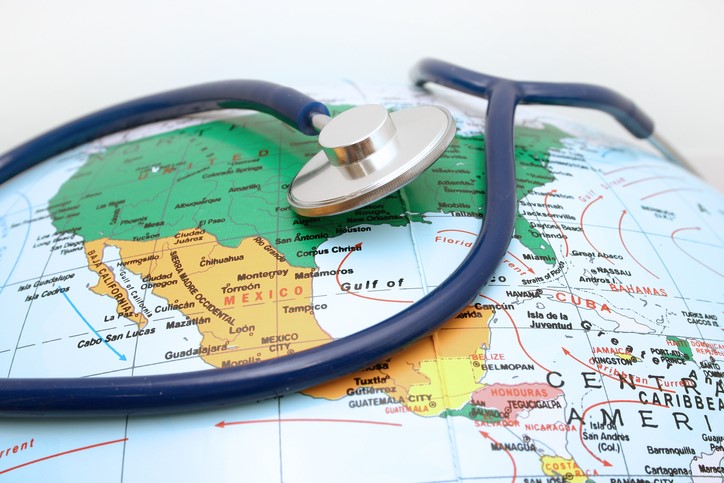 NGOs play a crucial role driving change in global health
NGOs play a crucial role driving change in global health
Public health research continues to highlight global disparities in basic health systems - a result of worldwide socioeconomic, political and ecological influences. Among the top career destinations for public health students, international Nongovernmental Organisations (NGOs) can address this disparity directly, working to improve health services around the world.
From disease prevention to international aid, NGOs often address the most urgent global health needs. They also play an important role in shaping policy - helping governments meet commitments to global health.
While NGOs value a variety of educational backgrounds, few candidates come more prepared for international work than those who study global health and public policy. Read on to find out how a top degree can prepare students for a rewarding career with international NGOs.
International NGOs Prize a Global Health Perspective
Whether they work to change policy or deliver crucial health services, international NGOs operate with a global health perspective - a keen understanding of the factors that affect public health systems worldwide. NGOs often prioritise initiatives by assessing health risks around the world, and determining how and where their efforts could be most effective. A Global Public Health degree cultivates this perspective, teaching future professionals to assess health systems in view of wider economic, social and historical factors.
In addition to the fundamentals of global health, students are exposed to adjoining disciplines like jurisprudence and international relations. This allows them to consider the wider political factors that drive health governance, and is especially helpful for NGO work that aims to shift public policy or collaborate with the public sector. Global health degrees train students to consider this perspective before they enter the workforce - a crucial advantage over other applicants for NGO positions.
Global Health Graduates Excel at Research and Critical Thinking
Preparing students to evaluate and compare health systems around the world, global health degrees develop key research skills and theoretical insights. For instance, top courses will focus on economic theories and concepts that explain health governance and resource management - a key consideration for future professionals working in international aid. Moreover, a strong theoretical foundation can help students adapt the services they provide NGOs after their Global Public Health degree.
International NGOs apply a critical lens to international health systems. Preparing students for this responsibility, Global Public Health degrees can impart statistical analysis techniques. Future NGO workers can learn to interpret international health statistics and assess important metrics relating to mortality and morbidity. Global Public Health students also consider the philosophical underpinnings of data and statistical proof, thinking critically about the role of evidence in public health policy.
 Critical thinking helps NGO professionals collaborate at the international level
Critical thinking helps NGO professionals collaborate at the international level
A Global Public Health Masters Introduces Key NGO Priorities
In addition to global perspectives and research skills, a Global Public Health degree can introduce students to key issues that will shape their future careers with international NGOs. Top degrees encourage students to consider the practical concerns that fuel everyday NGO work - and anticipate future global health priorities. Chief among these topics is disease prevention and management, combining clinical considerations with program planning and resource management. This insight is especially helpful for future careers in HIV prevention and awareness – a primary concern for many international health NGOs.
Among the growing priorities for international NGOs, climate change weighs heavily on current and future global health risks. A public health degree can encourage students to determine how environmental factors affect global health and governance at all levels. Master students can explore these and other NGO priority subjects in their dissertation, gaining unique expertise to serve their career choices and long-term professional growth.
 International NGOs provide opportunities to travel and experience new cultures
International NGOs provide opportunities to travel and experience new cultures
Are you hoping to launch a rewarding public health career with international NGOs?
Contact Queen Mary Online to find out more about our Global Public Health Masters!
.png?width=280&height=74&name=logo%20(1).png)

 Follow us on Twitter
Follow us on Twitter Like us on Facebook
Like us on Facebook